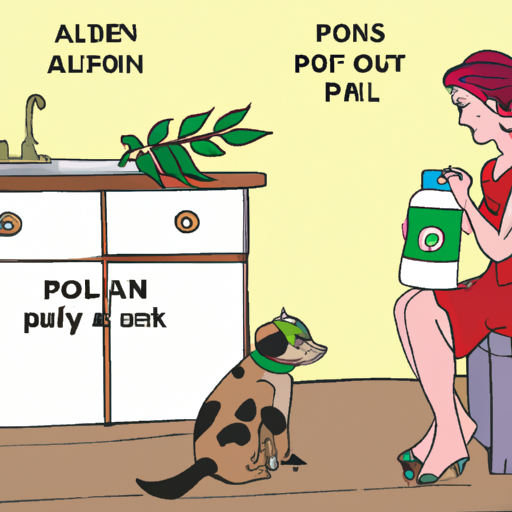Recognizing Poison Ivy Rash in Your Dog
Your beloved four-legged friend can indeed get poison ivy, just like us. Yet, dogs are often more resilient due to their protective fur coat. However, areas with less fur, like the belly or inner legs, are more vulnerable. Symptoms to watch out for include:
- Excessive scratching, licking, or chewing at the skin
- Red, inflamed skin
- Blisters or sores
- Swelling
Should you notice any of these symptoms, it’s time to put on your caregiver hat and start treating your four-legged pal.
At-Home Remedies
Treating poison ivy in dogs at home is a rather straightforward process. Remember, you’re not alone in this journey, and there are several home remedies you can try:
-
Rinse with Cool Water: Start by gently rinsing the affected area with cool water to remove any remaining plant oils. Avoid warm or hot water, as this can open up pores and allow the oil to penetrate further.
-
Apply a Cold Compress: A cold compress can help alleviate inflammation and itchiness. Wrap an ice pack in a cloth and apply it gently to the affected area.
-
Oatmeal Bath: An oatmeal bath can provide soothing relief. Grind oatmeal in a blender, mix it with warm water, and let your dog soak for 15-20 minutes.
-
Hydrocortisone Cream: Over-the-counter hydrocortisone cream can help alleviate itching and inflammation. Apply a thin layer to the affected areas. Be sure your dog doesn’t lick it off, as it can be harmful if ingested.
Preventative Measures
Prevention is always better than cure. Here are a few steps you can take to protect your dog from poison ivy:
- Keep your dog on a leash when hiking or walking through wooded areas.
- Teach your dog the “leave it” command to prevent them from sniffing or touching suspicious plants.
- Regularly check your dog’s skin, especially after outdoor activities.
When to Visit a Vet
While home remedies can be effective, there are times when professional help is needed. Consult your vet if:
- Symptoms persist for more than a few days
- Your dog appears to be in severe discomfort
- You notice any signs of infection, like pus or increased redness
Your vet may prescribe medicated shampoos, creams, or oral medications to help alleviate symptoms.
FAQs
Q: Can dogs get poison ivy?
A: Yes, dogs can get poison ivy, but their fur provides some protection.
Q: How can I prevent my dog from getting poison ivy?
A: Keep your dog on a leash in wooded areas, teach them the “leave it” command, and check their skin regularly.
Q: When should I take my dog to the vet for poison ivy?
A: If symptoms persist for more than a few days, your dog seems in severe discomfort, or you notice signs of infection, consult your vet immediately.
Remember, as a caregiver, your vigilance and quick action can make a world of difference in your dog’s wellbeing.



